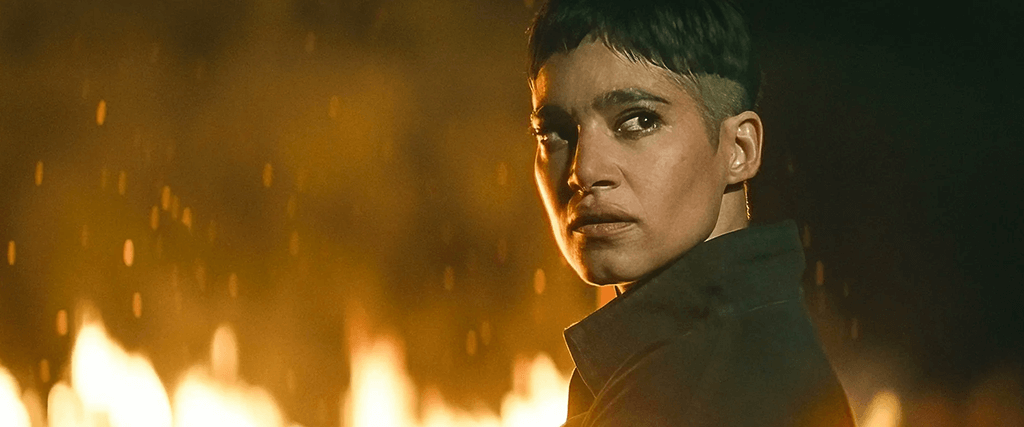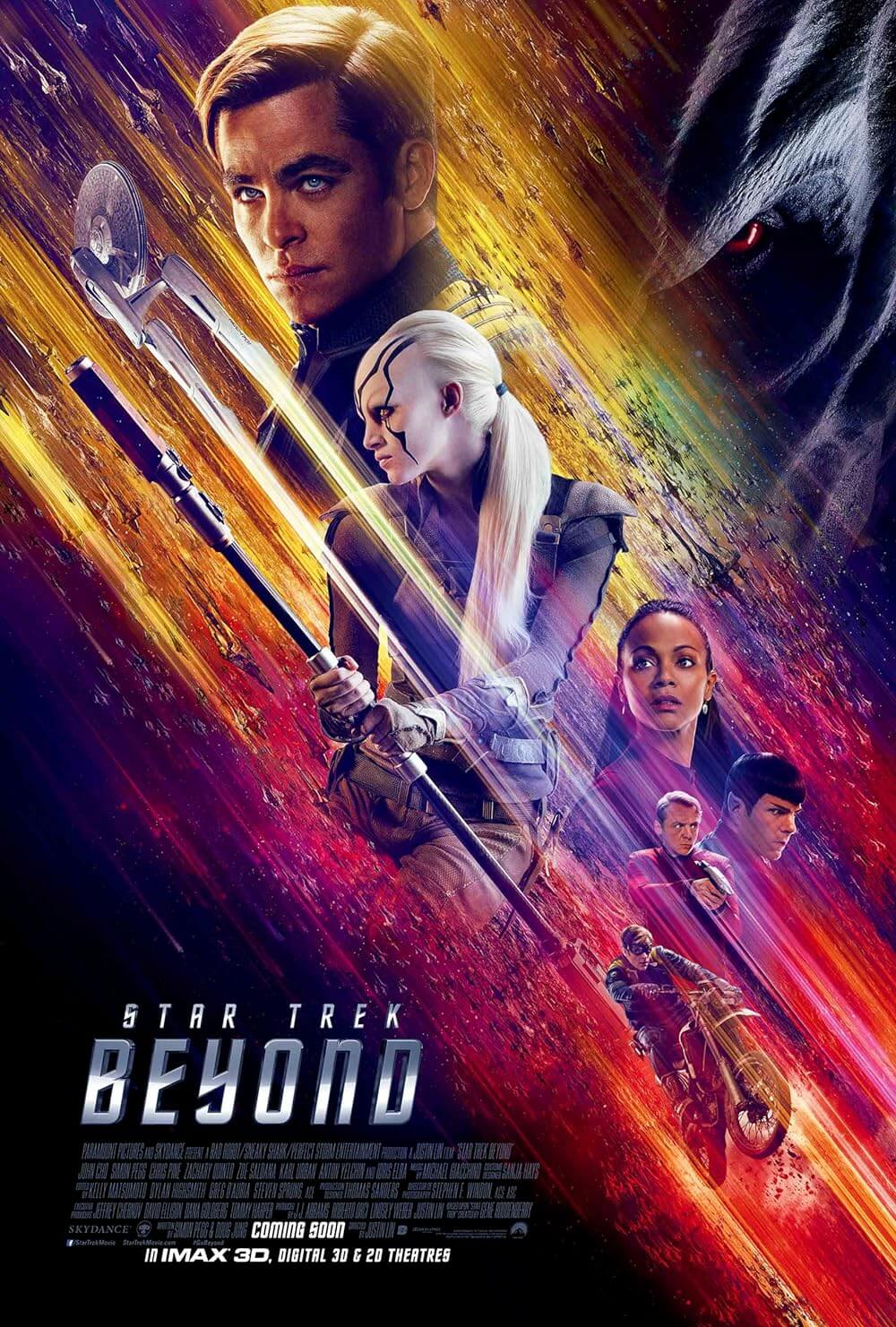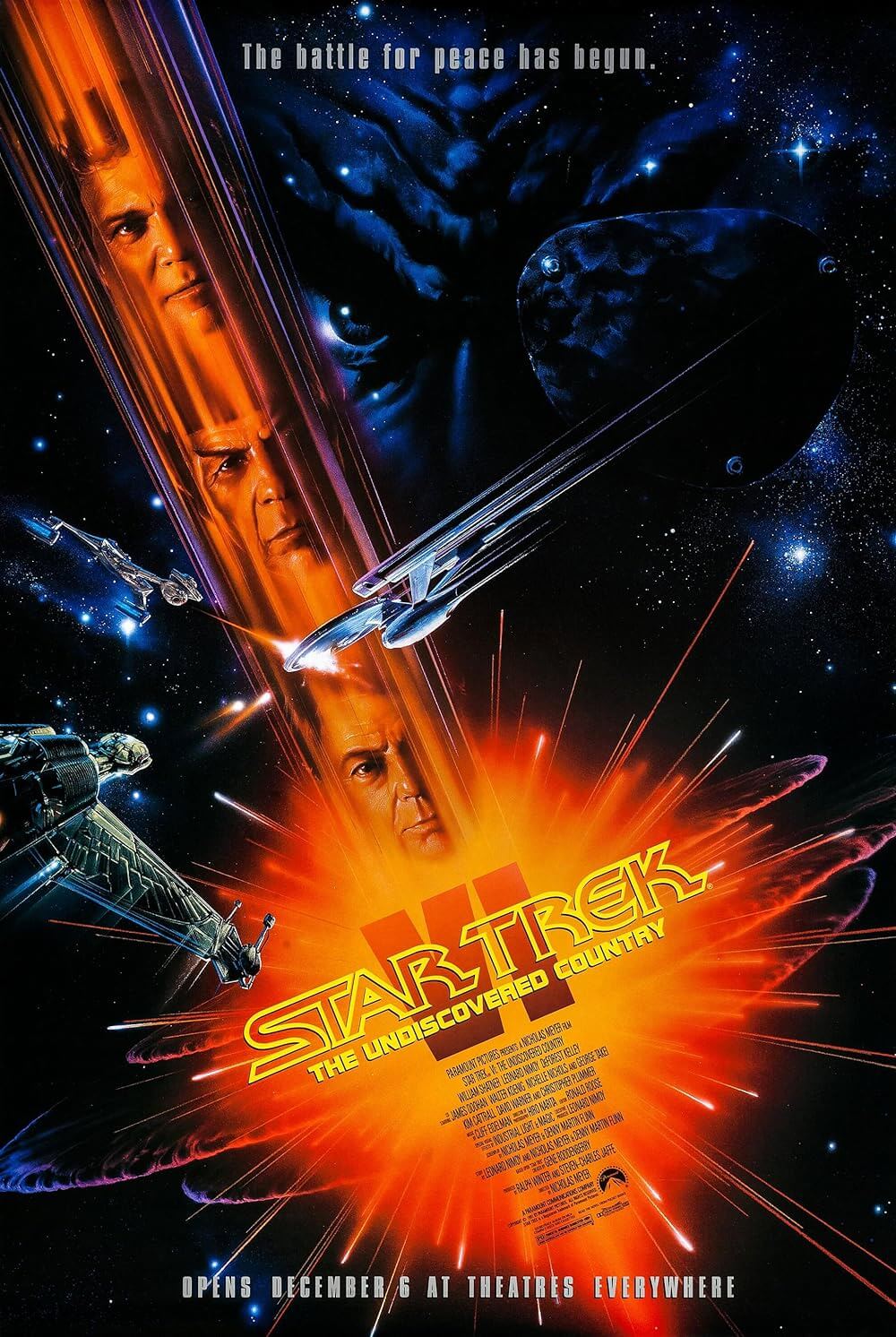
Rebel Moon – Part Two: The Scargiver
By Brian Eggert |
Zack Snyder continues his Netflix sci-fi series Rebel Moon with the first sequel, Part 2: The Scargiver, after its predecessor debuted on the streamer five months ago and failed to make much of an impression. The experience of watching Rebel Moon – Part 1: A Child of Fire remains a blur; not one element stands out in the mind, except perhaps Jena Malone’s short-lived spider villainess. It’s best deleted from the memory banks, whereas you should avoid the sequel altogether. A woefully dull and empty hunk of would-be entertainment, The Scargiver’s storytelling adopts a by-the-numbers structure, with its imagery overly derivative of Star Wars iconography and the plotting drawn from Akira Kurosawa’s Seven Samurai (1954). To be sure, if A Child of Fire amounted to a sci-fi-infused version of the first half of Kurosawa’s classic, where a wandering warrior amasses a small force of experienced fighters to protect a farming village, The Scargiver is the second half, where the fighters defend the village. Half the movie is devoted to The Final Battle—which is not final at all—so it should be an exciting watch. Instead, it proves to be two hours of spectacle so tedious that anyone not reviewing the movie may be tempted to shut it off well before the halfway mark.
As though anticipating how his audience won’t have cared enough to retain anything about Part 1, there’s a convenient recap narrated by Anthony Hopkins, who voices a sentient android named Jimmy. Summarizing in a few lines the earlier events, Jimmy notes that our heroes were victorious, defeating the resident evil admiral Atticus Noble (Ed Skrein). Cue dramatic pause. “…Or so they believed.” Rebuilt with tubes and wires inside a sack reminiscent of the pod people from 1978’s Invasion of the Body Snatchers, Noble returns to exact retribution on Sophia Boutella’s empire-flunky-turned-rebel leader, Kora, who has now settled on the titular farming moon and fallen in love with a local, Gunnar (Michiel Huisman). Arriving full of reassurances that the admiral is dead and the empire should leave them alone as protocol dictates, Kora must eat crow when, a moment later, the village discovers they have five days before the next attack. After some mild bickering and a training montage, the fighters assemble to prevent Noble’s Mother World soldiers from pillaging their crops.
While all of this buildup occurs, it’s worth wondering why, at this point in Snyder’s intergalactic series, no one has solved the food problem. Humans have mastered space travel and artificial intelligence. We’ve discovered new species and visited strange planets. But we haven’t yet invented replicators or even a worthwhile synthetic food? It seems weirdly inconsistent that Noble and his faction of imperialists can use technology to regenerate their bodies, but for some reason, they still need wheat to feed their armies. Then again, Snyder and his co-scripters Kurt Johnstad and Shay Hatten don’t apply much thought to The Scargiver. The primary concern is giving the director an excuse to purvey more stunningly arranged but empty images that never approach the feelings of high drama as intended. Serving as cinematographer, Snyder crafts numerous neat-looking sequences with a signature overreliance on slow-motion movements. However cool his procession of battles with laser guns and lightsabers (by another name, of course) looks at times, I struggled to care about anyone or anything happening onscreen.
Does Snyder expect us to remember such forgettable characters from A Child of Fire? I didn’t. Not one name stuck. And so, the movie finds a clunky excuse for his characters to remind the audience who they are in a forced scene at a dinner table, where Djimon Hounsou’s former military general literally asks other characters to share their backstories so their bonds will be stronger. Using flashback footage from A Child of Fire, Hounsou’s Titus, Doona Bae’s Nemesis, and others you may struggle to recognize, share their motivations in a sequence of such incredible laziness that it almost feels like satire. But it isn’t. And it’s a shame because Snyder has assembled a talented cast. Yet, he limits them to cliché characters who speak in banalities and act out predictable dramatics, all feeling devoid of life. Worse, Snyder promises his eventual R-rated versions of both Rebel Moon features will be even better, loaded with more graphic violence and plenty of sex. It’s almost unfathomable to think either feature will improve with a more visceral or sexualized presentation. However, versions with added scenes of character development, which don’t sound like they were written by someone who barely passed their Screenwriting 101 course, may help.
Reportedly, Snyder has as many as four more installments rattling around in his head. His ambitions for the series rival James Cameron’s for the Avatar franchise. Except, in Cameron’s case, he counteracted the audience’s indifference to a sequel by making The Way of Water (2022) a visual marvel and an essential cinematic viewing experience, reminding skeptics of how Cameron always delivers a worthwhile spectacle. With The Scargiver, not only does Snyder fail to justify the sequel, but he also threatens his audience with a cliffhanger ending. The prospect of sitting through another one of these things is unfathomable. The bottomless generic quality of everything happening in The Scargiver is a persistent reminder that Snyder’s talents include rendering macho, epic-sized visuals, whereas pesky details such as story and dimensional characters have never been priorities. Here’s hoping he thinks better of continuing with Rebel Moon and applies his talent somewhere else, preferably something he didn’t help write, to better showcase his strengths as a director. Life’s too short for movies like this. And if The Scargiver isn’t the last chapter, it’s the last one this critic intends to review.

Unlock More from Deep Focus Review
To keep Deep Focus Review independent, I rely on the generous support of readers like you. By joining our Patreon community or making a one-time donation, you’ll help cover site maintenance and research materials so I can focus on creating more movie reviews and critical analysis. Patrons receive early access to reviews and essays, plus a closer connection to a community of fellow film lovers. If you value my work, please consider supporting DFR on Patreon or show your support in other ways.
Thank you for your readership!
Brian Eggert | Critic, Founder
Deep Focus Review







